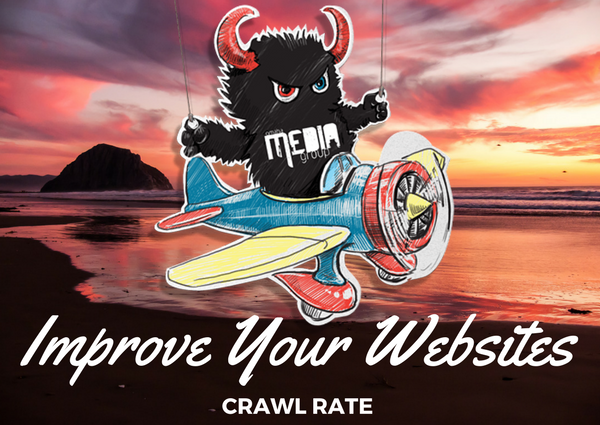How Can You Improve the Crawl Rate of Your Website?
 https://www.omahamediagroup.com/images/uploads/monster_gallery/Omaha-Media-Group-Black.jpg
https://www.omahamediagroup.com/images/uploads/monster_gallery/Omaha-Media-Group-Black.jpg

What is crawl rate of a website?
Crawl rate can be defined as the number of times Google and other search engines visit your website or blog. It is an important SEO metric and defines how quickly a particular post, information or page gets indexed by Google and other major search engines. You can’t force a search engine to visit and crawl your website but you can definitely employ some strategies, ploys and make necessary arrangements so that Google bots and spiders respond quickly to an update that you have made.
Crawl rate can vary from a few hours to a few weeks. A poor crawl rate would mean that a number of your pages and posts won’t be indexed on Google and other search engine search pages and this means that your readers and visitors to your site would be deprived of the content that you produce for a few days. Immediacy is extremely important for a number of blog posts, promotional updates and arguably most important for news sites which are always under the pressure to break a new story before its competitors do. If the page is not indexed immediately, it may lose relevance and this is worrisome because the audience has no lack of options and is always getting deluged with a lot of information. Attracting their attention immediately is important.
If a page of a website or blog is not indexed, it will not appear in the search results and in order to access it, a visitor would have to type in the URL and reach your website. A slow crawl rate can mean a loss of a number of potential visitors.
Ways to improve the crawl rate of your website or blog
1. Use sitemaps
If your website or blog is not using XML sitemaps, you are making a fundamental mistake. A website without sitemaps will never have the best crawl rate and it will also not provide the best user experience. There is enough anecdotal proof that suggest that adding sitemaps to websites and blogs have improved their crawl rate.
2. Update your website regularly with relevant and original content
All search engines give content a lot of importance. In order to improve the crawl rate of your website, you can integrate a blog or a news section to it so that you can update it regularly in a cost-effective manner. You can also add videos and other forms of content. However, you need to keep in mind that Google search bots can easily understand if a piece of content has been plagiarized or not and it will negatively affect the crawl and indexing of the pages. So, plan and create a consistent blog schedule and publish fresh content.
3. High quality backlinks are extremely important
If you can include good, quality links in your content and pages regularly, Google will take that into account. This will help to improve your domain and page authority and direct Google to index your pages quickly. Try to get more backlinks from sites with higher domain authority because they are crawled and indexed more than others and it helps carry a lot of weight.
4. Manually control and monitor Google crawl rates
If you have a Google Webmaster tool account, you can use it to follow the Google crawl rate and relevant statistics. You may also increase the crawl rate using the feature. However, exercise caution while doing so.
5. A powerful server with good uptime
You need to be careful while choosing a host for your website and blog because a server which has frequent downtimes could lead to situations where Google tries to index a page when the server is not functioning. If your server has a high downtime, it may also send a signal to Google that the server has low operational capacity and Google will also slow down its crawling rate for the site.
6. Optimize your internal links, content and images
Don’t forget linking your new pieces of content to old but relevant content, especially if they are popular. Google takes your internal linking network seriously. Also, don’t forget to optimize your images, your content and also use the right meta tags and descriptions on every page.
Site crawl rate is an important factor for your website. If you ignore it, you stand to lose a chunk of your initial traffic, ability to create an immediate buzz as soon as a piece of content is published and also getting a high rank quickly. Ignoring it may also put you at a serious disadvantage vis-à-vis your competitors.
Let us help you increase your crawl rate!
Posted In: SEO and Search Marketing


























